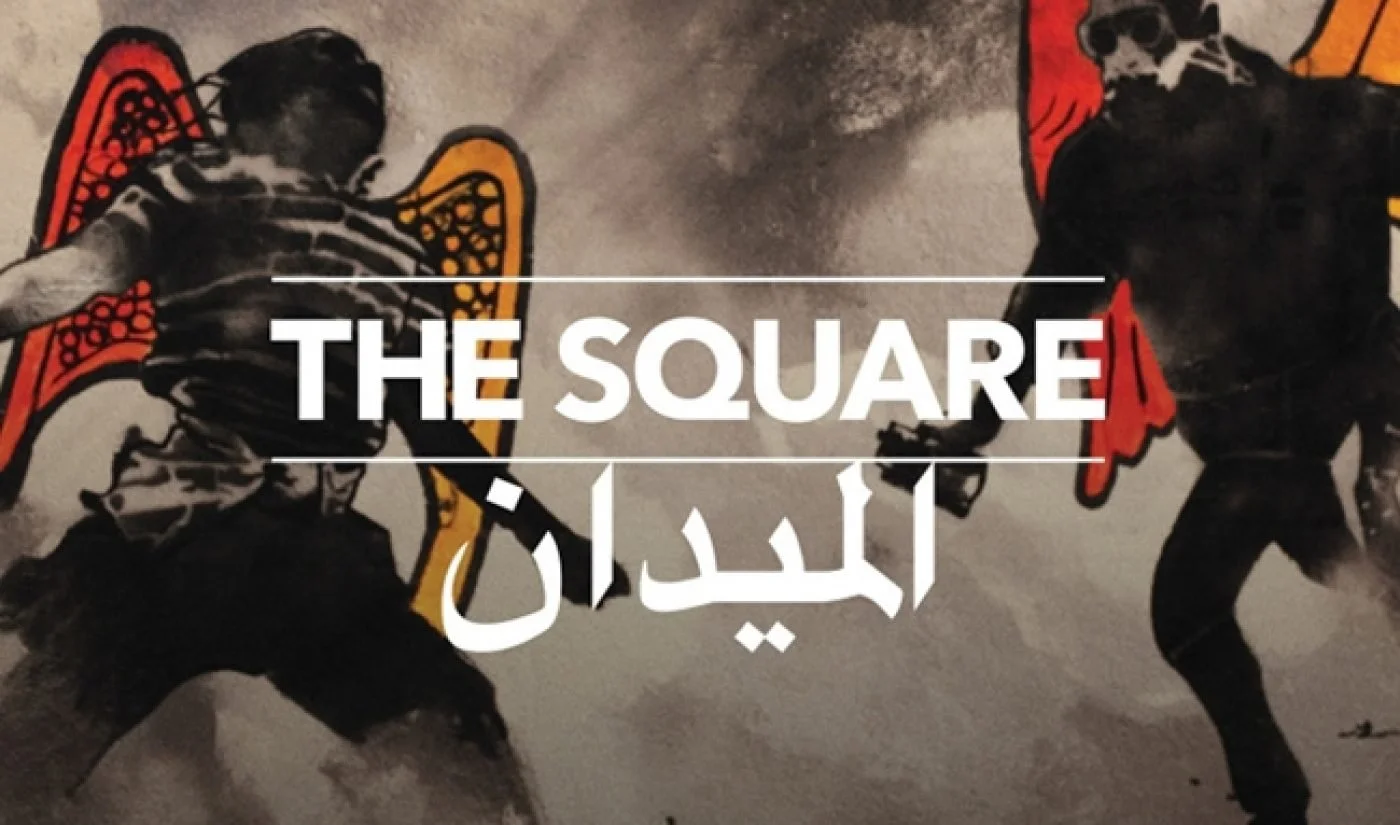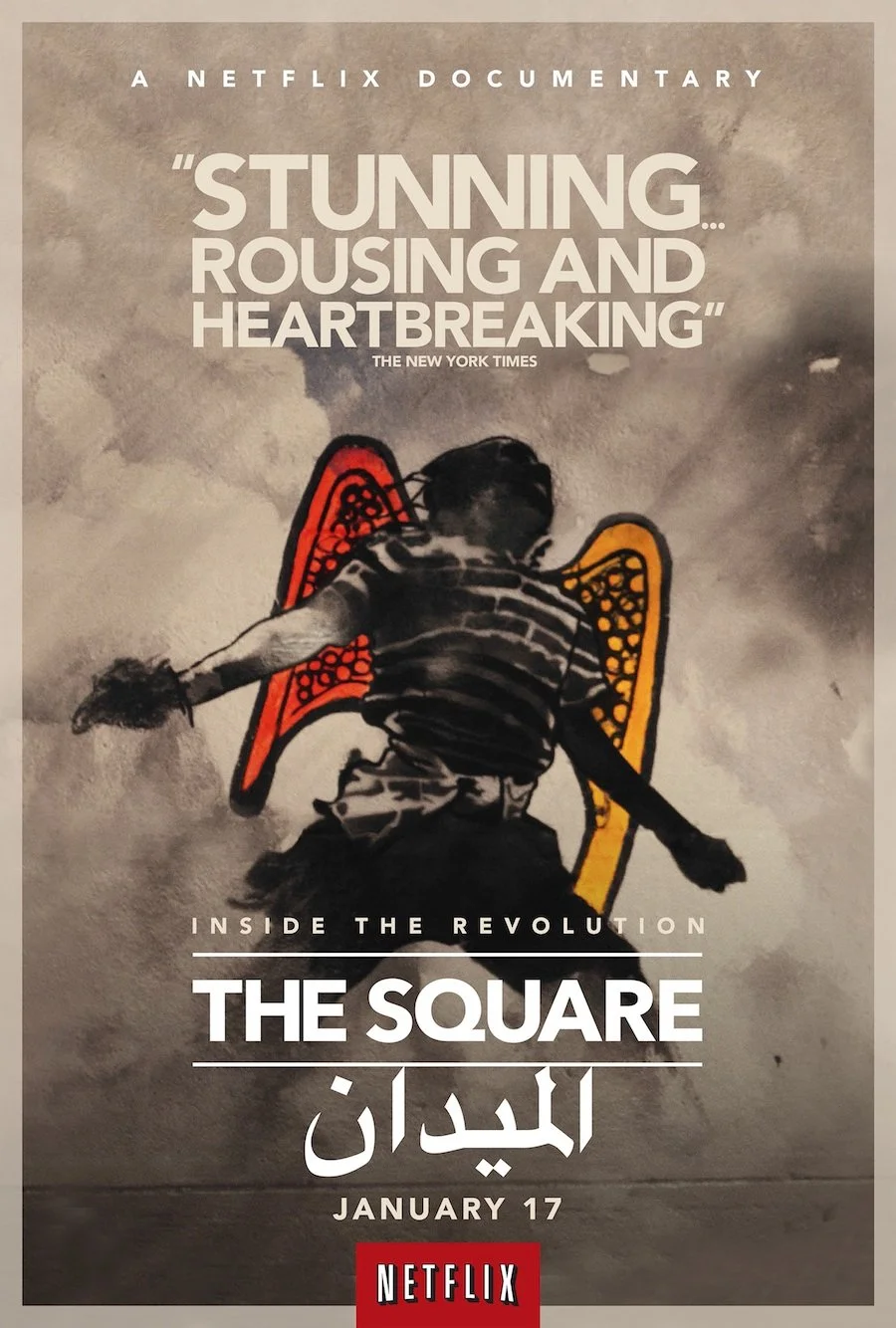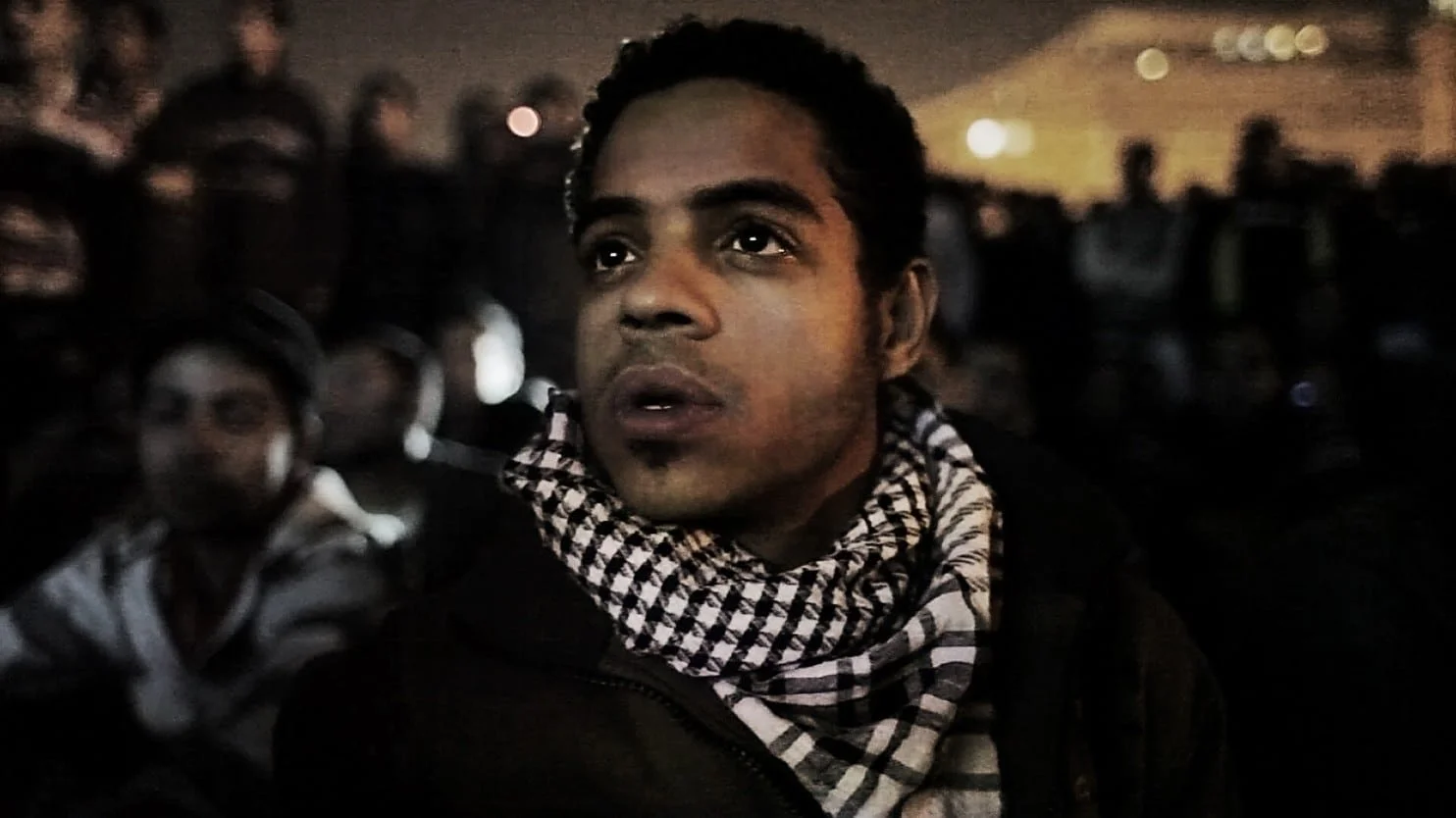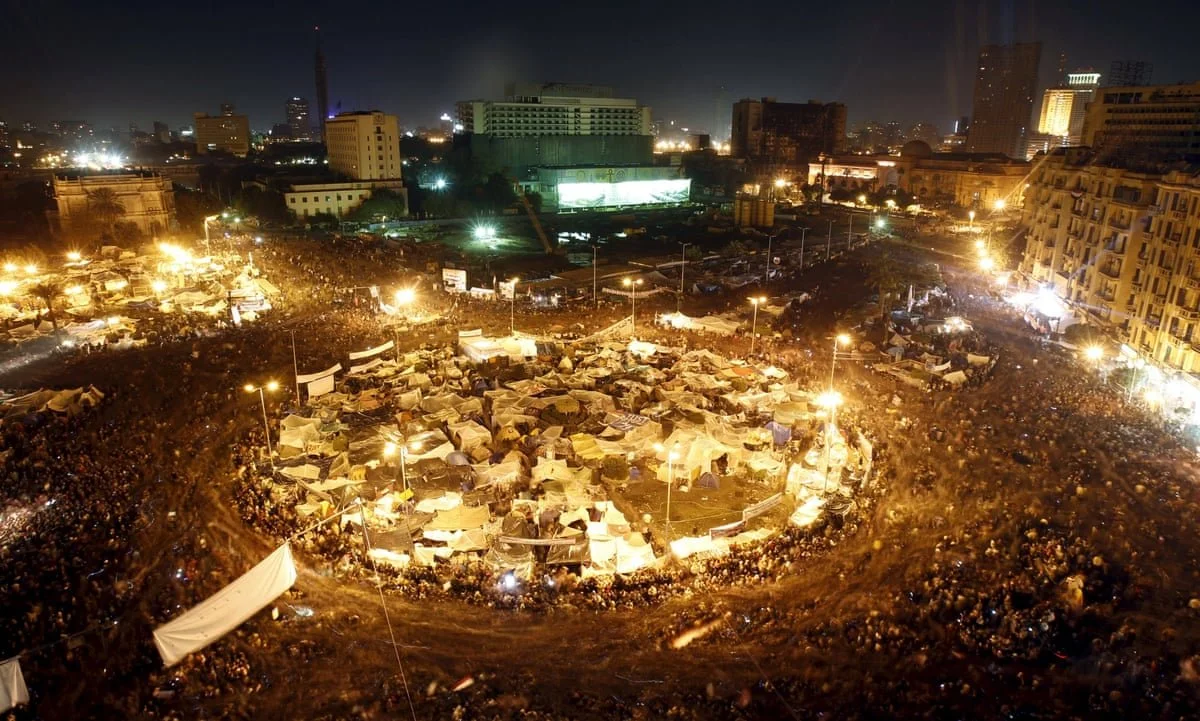Insight into the heart of the 2011 Egyptian Revolution
By Kevwe Ogufere
Barnet, LDN
‘The Square’ is a 2013 Egyptian-American documentary film by Jehane Noujaim, which depicts the Egyptian Crisis until 2013, starting with the Egyptian Revolution of 2011 at Tahrir Square. Various youth groups set the date of the revolution to coincide with the annual Egyptian "Police holiday" as a statement against increasing police brutality during the last few years of Mubarak's presidency. It consisted of demonstrations, marches, occupations of plazas, non- violent civil resistance, acts of civil disobedience and strikes. Millions of protesters from a range of socio-economic and religious backgrounds demanded the overthrow of Egyptian
President Hosni Mubarak. Violent clashes between security forces and protesters resulted in at least 846 people killed and over 6,000 injured. Protesters retaliated by burning over 90 police stations across the country. The Egyptian protesters' grievances focused on legal and political issues, including police brutality, state-of-emergency laws, lack of political freedom, civil liberty, freedom of speech, corruption, high unemployment, food-price inflation and low wages. The protesters' primary demands were the end of the Mubarak regime. Strikes by labour unions added to the pressure on government officials. During the uprising, Cairo was described as "a war zone", and the port city of Suez saw frequent violent clashes.
The film records the gruesome collision of the utopian aspirations with cold political realities. It is not a despairing film, It concludes on a note of resolve grounded in acknowledging that historical change can be a long, slow process. It offers a compelling inside look at the cascading series of revolutions and counterrevolutions that have shaken Egypt since the beginning of 2011. It is an intimate observational documentary that tells the real story of the ongoing struggle of the Egyptian Revolution through the eyes of six very different protesters. The films beginning depicts Egyptians living without dignity. This is representative of the perspective of people who have lived under Mubarak’s injustice all their life. The regime works against the people. Thus came the call have to go to Tahir square. Tahir Square acts as driving point for the narrative all important plot points happen at the square showing its centrality to the movement. “If you want to live with any dignity in this country, you have to go to the streets”. Many of the scenes of protest document the initial sense of unity and dignity experienced at the square during the revolution. ‘The Square’ shows the role of citizen journalist/filmmakers and the importance of an alternative narrative not controlled by the regime. In essence, the role of the film does not just depict the revolution but also be part of it. The film draws on multiple perspectives, including revolutionaries,The Muslim Brotherhood, and the military. As well as conflict arrives between these factions post-revolution; however, the battle between the state, people, and religion remains consistent throughout the narrative.
The film offers a critical perspective that can often be overlooked in western media depiction of conflict in the global south. The narrative presented by citizen media plays an essential role in raising awareness of issues, particularly during the conflict, as it acts as an alternative to the dominant narrative spread by the state. According to Foucault, ‘The regime's power resides in its ability to sustain national fictions, to enforce obedience, to make people say and do what they otherwise would not, hence the importance of this documentary is that it does the exact opposite, becoming a critical tool of the revolution itself. The film also opposes the Islamic theory of communication-based on a narrow and essentialist conceptualisation of !authentic"#culture. The film does not try to force an essentialist religious narrative as an alternative to mass media. Because of this, the film can give an honest insight into the revolutionaries, the military, and The Muslim brotherhood. This shows how citizen media is malleable. It does not necessarily have to serve a specific agenda but can be used to critique misuse of power in any context.
Cairo’s Tahrir Square listens to President Hosni Mubarak address the nation on 10 February 2011. He resigned the following day. Photograph: Amr Abdallah Dalsh/Reuters
However, where the film falls flat is giving context to the entire situation. One of the film's strengths also happens to be its major weakness. It places us right into the peak of the revolution with hardly any context about the factions involved. This helps the film stay somewhat neutral and allows the viewer to make a judgement on the various factions based on what is being shown, not what has been said in the past; however, the lack of context behind the formation of The Muslim Brotherhood and the start of the Egyptian Revolution was needed to give a complete picture. Furthermore, while the film is about the Egyptian revolution, it focuses too much on a select few revolutionaries that essentially become main characters in the film, while these perspective give us insight into different factions. They dominate the narrative and considering it is a film about the Egyptian revolution; more public interviews could be conducted. Overall ‘The Square’ offers a compelling inside look at the cascading series of revolutions and counterrevolutions that have shaken Egypt since the beginning of 2011. The film raises important questions of whom controls the narrative during periods of conflict, as its presence acts as an alternative to mass media narrative, that can sometimes act as agents of implementing power for this authoritarian regime.
Bibliography:
The Square, 2013 Jehane Noujaim, Egypt, 21/02/2021, Netflix
Photography:
https://www.opendemocracy.net/en/north-africa-west-asia/film-review-square/
https://alphashadowsblog.wordpress.com/2014/02/25/the-square-documentary-film-review/
https://www.theguardian.com/world/2016/jan/25/egypt-5-years-on-was-it-ever-a-social-media-revolution
https://www.washingtonpost.com/goingoutguide/movies/the-square-movie-review-an-exhilarating-portrait-of-egyptian-politics/2014/01/15/692ff142-7d49-11e3-93c1-0e888170b723_story.html





